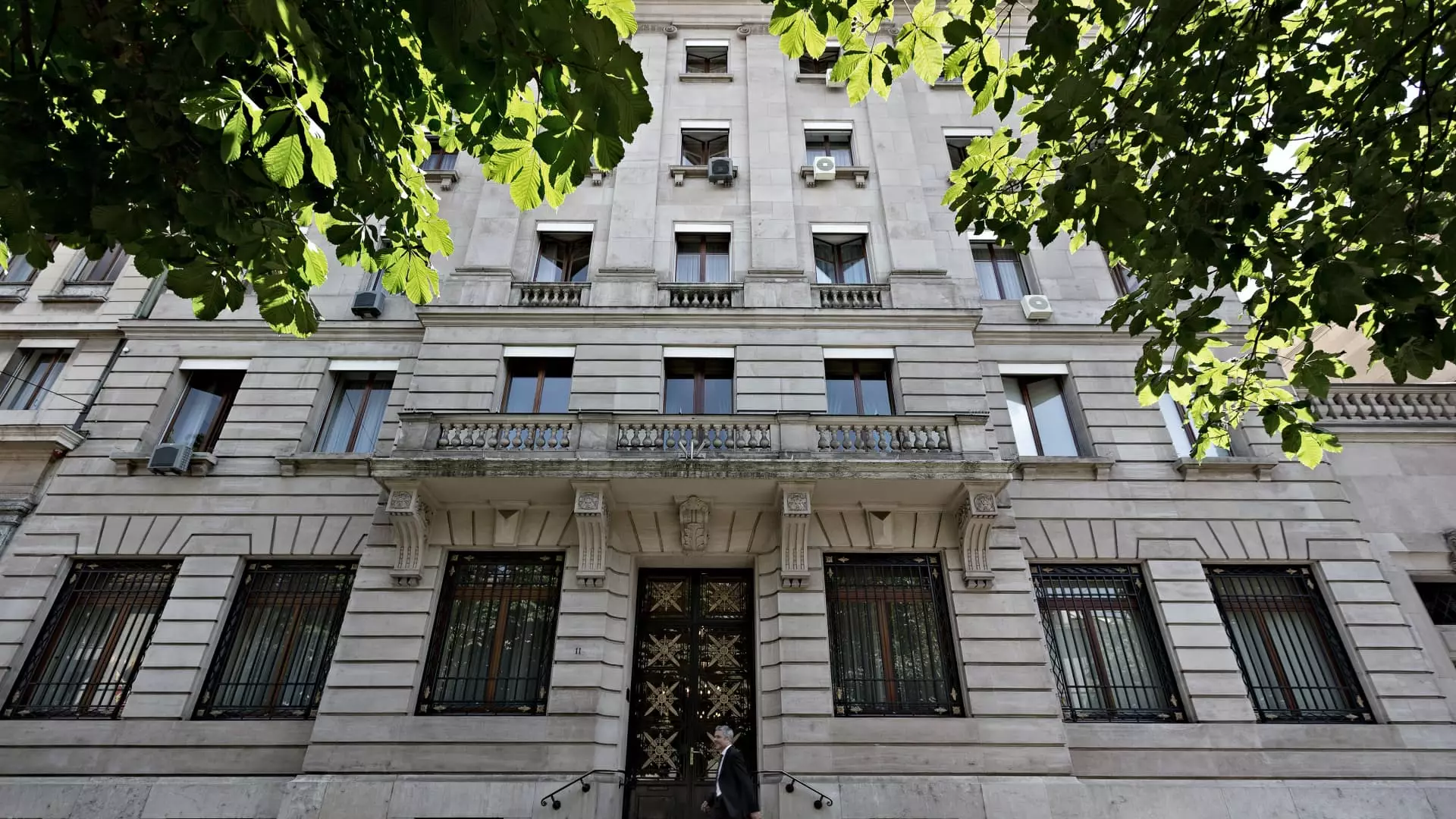Lombard Odier, a prestigious name in the landscape of Swiss banking, is currently navigating a severe legal storm, having been indicted for aggravated money laundering by the Office of the Attorney General of Switzerland. This serious allegation marks a significant moment for the bank, raising questions about oversight and compliance in a sector often perceived as a bastion of financial propriety. The indictment involves not only the bank but also a former employee, highlighting systemic issues that may extend beyond individual misconduct.
At the center of the indictment is an alleged conspiracy tied to Gulnara Karimova, the daughter of the former president of Uzbekistan, Islam Karimov. The connection between Karimova and Lombard Odier revolves around accusations that substantial amounts of money, designated as the proceeds of criminal activities from 2005 to 2012, were funneled through the bank’s accounts in Geneva. The Swiss Attorney General’s investigation has emerged as a painstaking probe into how these purportedly illegal funds were concealed, implicating the bank’s practices and its regulatory frameworks.
The name “The Office,” referencing the criminal organization linked to Karimova, underscores the complexities faced by financial institutions in distinguishing legitimate operations from nefarious activities. Given the history of Karimova, who is currently incarcerated in Uzbekistan, the scrutiny of her financial dealings has intensified, reflecting wider global concerns about the intersections of power, crime, and finance.
In response to the allegations, Lombard Odier maintains a staunch denial, asserting the unwarranted nature of the claims against them. The bank issued a statement emphasizing the proactive measures they took by reporting suspicious activities to Swiss authorities. This defense sheds light on a crucial point: Lombard Odier is attempting to project an image of diligence and responsibility in combatting money laundering issues, even as it battles serious accusations.
Furthermore, the bank’s historical pedigree, dating back to 1796, adds a layer of complexity to the scandal. Institutions with such long-standing reputations often find it challenging to navigate the dual pressures of maintaining robust financial practices and addressing the realities of contemporary regulatory environments. This case will not only test Lombard Odier’s legal fortitude but could also significantly impact its brand and operational ethos moving forward.
The unfolding situation poses critical questions about the overall integrity of Swiss banking. As one of the oldest private banks faces its moment of reckoning, it serves as a reminder of the vulnerabilities within a system renowned for its secrecy and stability. The repercussions of this indictment could echo across the industry, provoking a reassessment of compliance measures among financial institutions and compelling regulators to tighten their oversight strategies.
The Lombard Odier case reflects a pivotal interaction between legacy banking institutions and the pressing demand for transparency and accountability in global finance. As the legal process continues, the outcome will likely influence not only the bank’s future but may also reshape the landscape of Swiss banking ethics for years to come.

